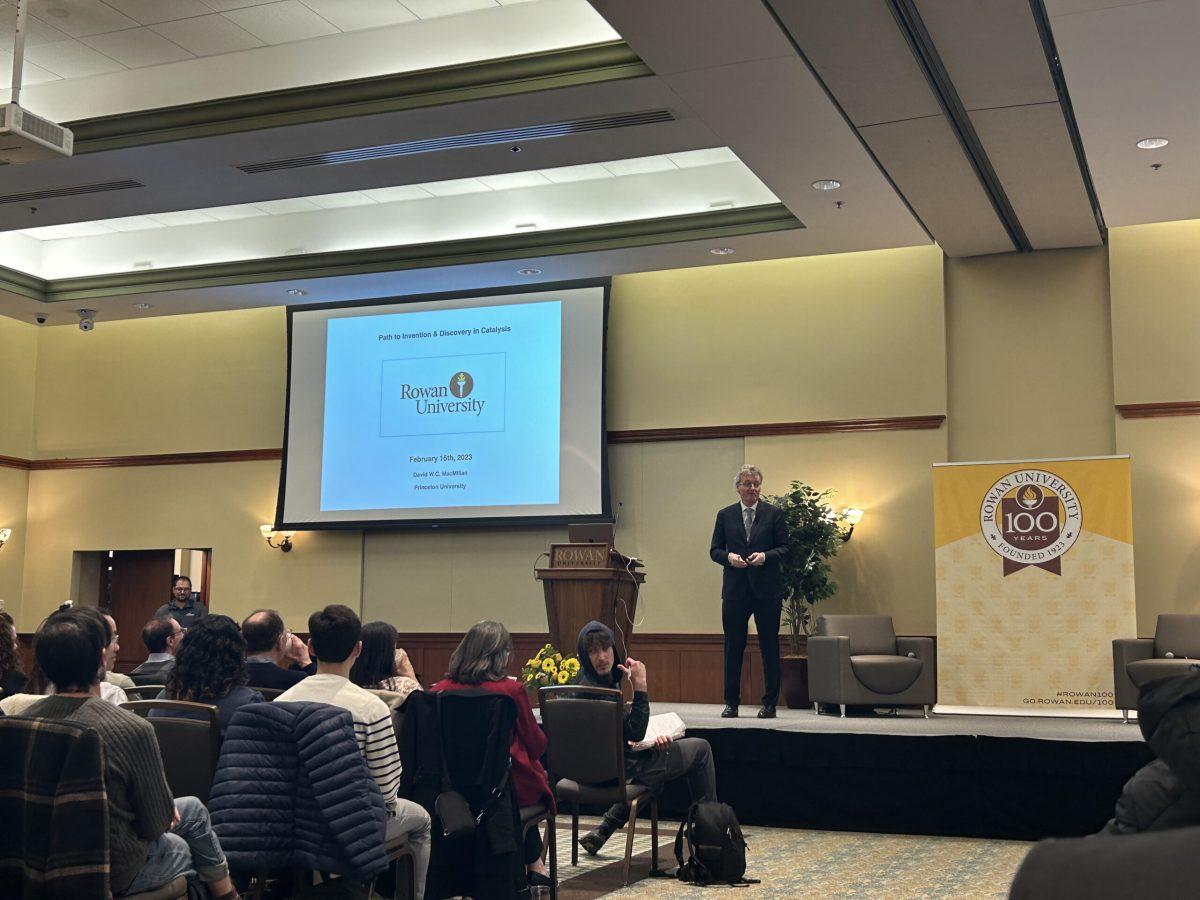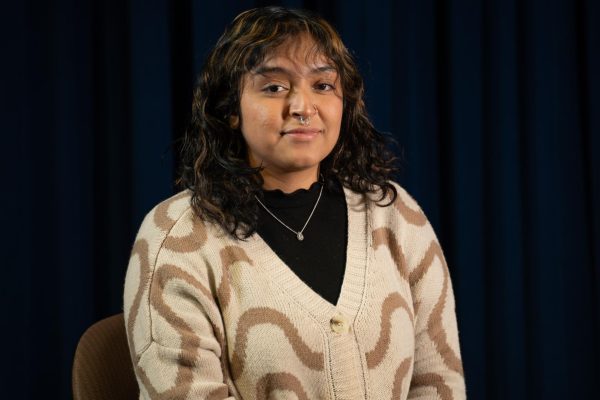A Nobel Prize recipient and an honored chemist visited Rowan University’s Chamberlain Student Center on Feb. 16, in the Eynon Ballroom. Dr. David MacMillian spoke in a two-part Centennial Lecture Series, where he talked about “The Path to Invention and Discovery in Catalysis” and “The Development of Asymmetric Organocatalysis and Metallaphotoredox.”
The lecture was held that Friday morning, at 10 a.m. from 11:45 a.m. and he discussed a new finding of chemical reactions called asymmetric organocatalysis. It also talked more about his general findings in his past research studies, his work as a Princeton University professor, and why he came to Rowan.
The second lecture held in the afternoon, at 3 p.m. from 4:15 p.m. was more technical and highlighted why organocatalysis has become so important in modern synthetic chemistry. He also discussed the idea of photoredox catalysts, a molecular compound, used in harnessing light energy for the invention of new organic chemistry reactions.
In the afternoon, there were many attendees, ranging from students to staff from Rowan University, who were interested in listening to the profound work of Dr. MacMillian.
Born in Scotland, Dr. MacMillian got his undergraduate degree at the University of Glasgow and took a postdoctoral position at Harvard University in 1996. Currently, he serves as the James S. McDonnell Distinguished University Professor of Chemistry. He was awarded the Nobel Peace Prize in 2021 because of his findings in asymmetric organocatalysis, according to the MacMillian Group, a team of researchers that the chemist works with.
The chemist holds his Nobel Prize lecture all around the nation, he first held this lecture on Dec. 8, 2021.
Many attendees were students who wanted to learn more about the professor but some were there to present their own research. After the lecture, a social space was made for researchers, graduate students, and more to gather and talk about their current work. Two graduate students from the Ph.D. in Pharmaceutical Chemistry Program at Rowan University attended the lecture, one of them named Samuel Foster shared why this event was so important.
“I think that being able to attract these higher profile speakers and these truly great academics is really a turning point in the university’s history..” said Foster. “I think it’s great that I get to be a part of that. As well as present some of the research that’s been going on at Rowan to a Nobel Laureate.”
This gives an opportunity for Rowan University to be recognized by other universities, as well as professionals who could be interested in students’ work.
Other attendees also came to learn more about what is going on at the Student Center. Some students attended this lecture because it is something they had never done before.
Elisabeth Comeli, a student from the College of Science and Mathematics, was in attendance because, “I don’t really attend things like this, but hopefully, this opens me up to actually attending more things like this and learning more outside of class.”
From his research and also with his team, Dr. Macmillan was able to find a new way for molecular construction, the tool of asymmetric organocatalysis, which is essential in learning how new drugs and materials are made. These chemical reactions that the team tested had the potential to create a groundbreaking drug discovery, which has been a 17-year-old problem for them. This new reaction mechanism, as he said during his lecture, designs new chemistry.
At the end of the lecture, Dr. MacMillian thanked his team especially during the Covid-19 Pandemic, because their hard work kept the research going, and kept the lab alive. He will continue to thank these students every time he presents a lecture on chemistry.
“This is an amazing group to work with, over my career I’ve been doing this for just over 25 years, and it’s an incredible privilege to work with amazing students,” said Dr. MacMillian. “I’ll tell you why because during COVID-19 they actually easily calculated and I don’t mean to calculate on an alarm on a load in the lab for a long time, but they kept the group cultural and kept all the institutional knowledge together.”
For comments/questions about this story DM us on Instagram @thewhitatrowan or email [email protected].























































































































































!["Working with [Dr. Lynch] is always a learning experience for me. She is a treasure,” said Thomas. - Staff Writer / Kacie Scibilia](https://thewhitonline.com/wp-content/uploads/2025/04/choir-1-1200x694.jpg)









































